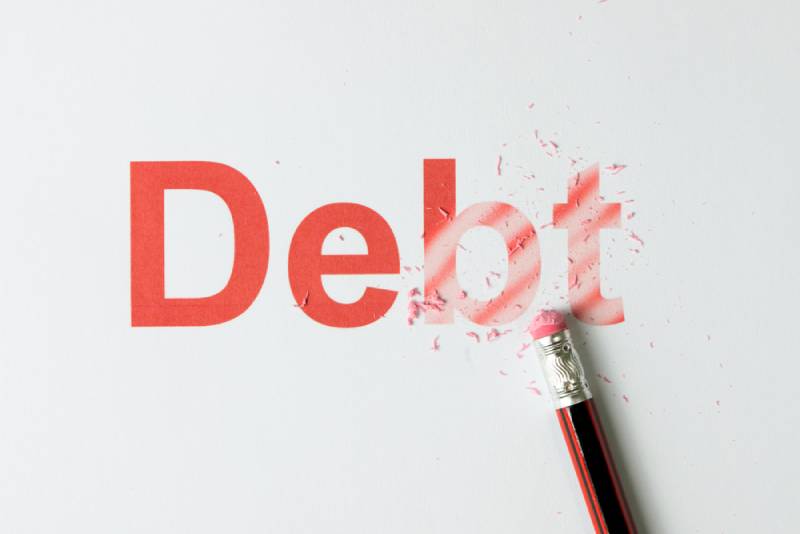Paying off your debt is hands down one of the best feelings out there. It not only erases the financial burden the debt has placed on you but also improves your credit score, thereby making it easy for you to borrow money to put towards purchases that benefit you.
However, many people make avoidable mistakes when trying to get out of debt which could delay or completely sabotage their efforts towards financial freedom.
We have observed that most debt incurred is from:
- Credit card debt
- Student loans
- Car loans and car repairs
- Unexpected expenses and,
- Poor spending habits
While this list is not exhaustive, it is important to recognize and admit where your debt problem stems from.
As you know, admitting is always the first step towards solving a problem.
I understand that while becoming debt-free is necessary, it isn’t always a smooth road.
Problems from debt payoff are very common. This is often due to a lack of proper information and could lead to worse financial mistakes.
I have compiled a list of the common mistakes people make when working towards becoming debt-free.
Make sure you review the information so that you can avoid these mistakes.
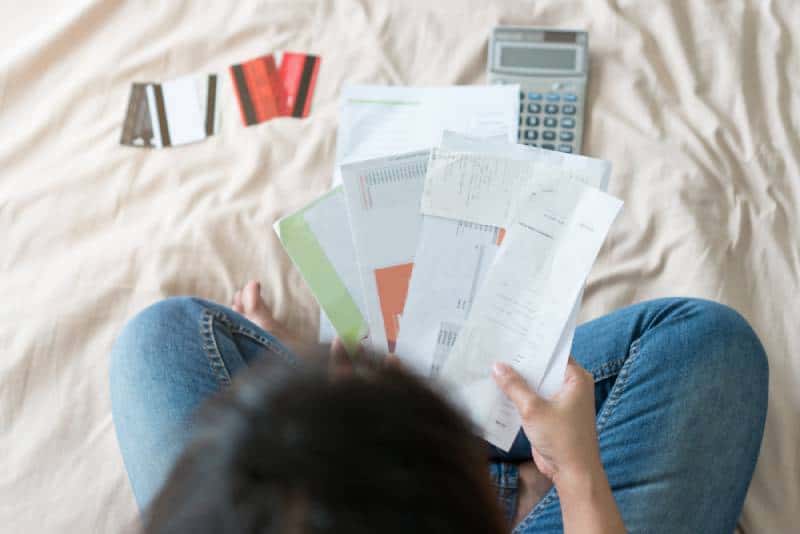
1. Having No Emergency Fund When Working On a Debt Payoff
While you should put almost every dollar you make towards debt payments, it is also wise to save for emergencies that may arise.
All sorts of things could happen that will result in unexpected expenses, and if you have no emergency fund to dip into, all your effort will go down the drain.
This is one of the most common mistakes people make when trying to get out of debt.
Having no emergency fund to pay for unexpected expenses could cause you to borrow more money and get deeper into debt.
Unfortunately, most people that face this problem rely on their credit cards to pay for expenses.
This decision will undo all your hard work and you’ll end up with more debt with a high-interest rate to pay off.
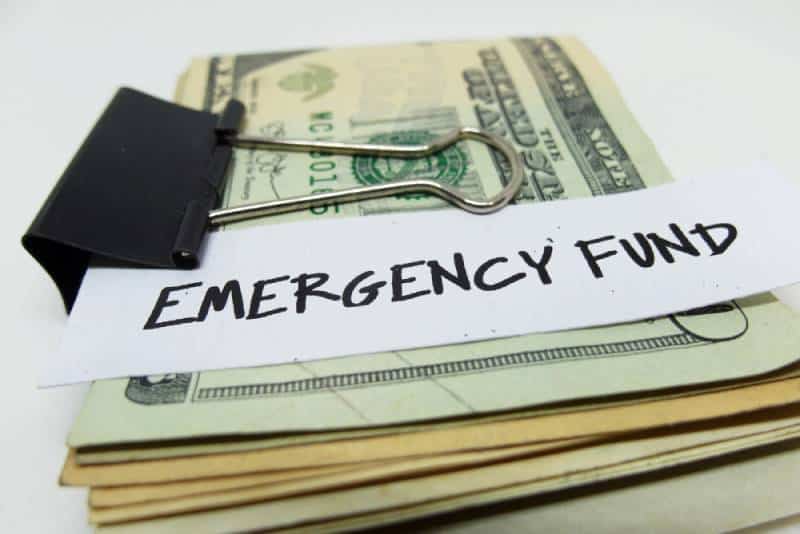
To avoid this, you must put aside funds for any emergencies that could come up.
It doesn’t have to be a whole lot of money, but any small steps you take will eventually build up to help ease your journey towards becoming debt-free.
It goes without saying that you should use that money for emergencies and emergencies only.
You can set up a sinking fund to save for a particular expense, which will also help you avoid debt.
2. Maintaining the Same Spending Habits
Curbing habits which got you into debt is paramount to becoming debt-free and managing your personal finance properly.
People tend to stick to old habits when spending money.
This is counterintuitive because those personal finance habits are what got you into the fix you are in.
To break free from these habits and take control of your spending, you need to work towards unlearning them.
Yeah, yeah. Cooking at home instead of going out to lunch and dinner may be boring, but think about the money you end up saving in transportation to and from the restaurants, tips, and the often ridiculous food bills.
RELATED:
- Monthly Meal Planner to Help You Cut Costs and Save on Food
- Budget Meal Planning: 11 Strategic Tips For Money Saving
That extra money could be put towards paying off debt or paid into your savings account.
You may have to quit cold turkey on some of your really bad habits to reach your goals faster. Other more subtle habits could be tackled at a much slower pace.

What really matters is that you make the effort to categorize your expenses and replace bad habits with good ones.
Below are some small steps you can take to substitute bad habits with good habits to help you reach your financial goals.
- Make coffee at home instead of visiting the neighborhood coffee shop
- Eat cleaner and healthier food options
- Make lunch at home to take to work
- End at least two of your subscriptions to movie streaming sites and,
- Take the bus or subway instead of getting an Uber or Lyft
Remember that sticking to a habit for 21 days makes it easier.
So, challenge yourself. Get an accountability buddy or an app to help you track your progress.
Over time, you will discover that you have a lot more spare cash to put towards paying off your debt.
3. Having No Debt Payoff Plan
This is the most common mistake when trying to get out of debt.
People fail to realize that planning is of the essence in every area of life – your personal finance included.
Setting defined goals and having an action plan is compulsory if you are to successfully get out of debt.
You can choose to work with a professional towards making a plan or utilize resources on the internet to help you.
Your plan should ask and provide answers to each question at every step of your debt payoff.
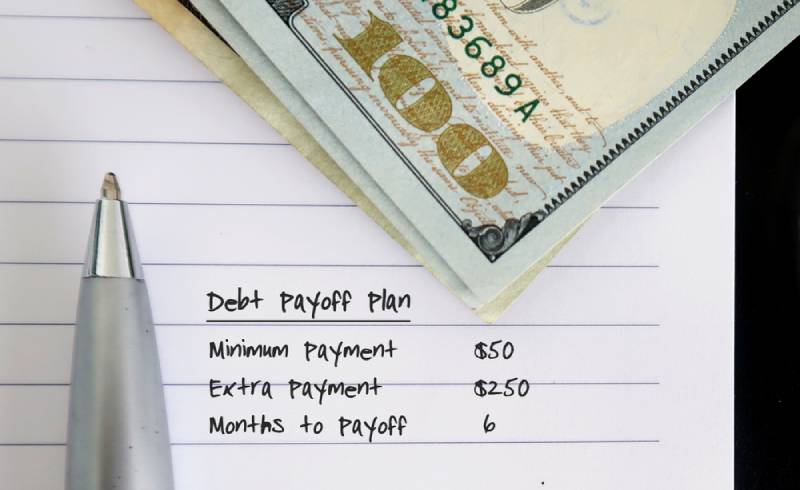
Your plan must answer the following questions –
How much money do I owe – As I said earlier, admitting and coming to terms with your mistakes is always the first step towards solving your problem.
Make time to go through all your debts and figure out exactly how much you owe with interest rates included.
You can carry out this exercise with a friend who is an accountant. Once you have a clear figure, you can then write up an action plan towards paying off your debt.
How much money can I put towards paying off my debt – Arriving at a specific figure will help with deciding how much money you need to put towards paying off your debt and how often you will have to do it.
You could choose to make weekly payments or monthly payments of a particular amount to your creditors.
Including these payoffs in your budget will help with putting money away towards your debt.
You can also set alarms or reminders on your phone to let you know when the payoff day has arrived.
What debt should I tackle first – If you are low on cash, we recommend you utilize the debt snowball method.
This is when you pay off your debt with the least monetary value first. This guarantees quick wins and can significantly raise your credit score.
On the other hand, if you can afford to, you should pay off debts with a high-interest rate to lessen the burden of having to pay interest accrued on debts with a large monetary value.
Group each debt in order of importance – While doing this exercise, it is very important that you carefully analyze each debt to determine its order of importance.
This will help you with prioritizing which debts to focus on.
Debts such as home mortgages will usually have low-interest rates and payments can be spread over an extended period of time.
However, debts with high-interest rates should ideally be paid off first to lessen the strain of your debt settlement.
4. Failing to Verify Your Credit Report For Inaccuracies
Credit reporting bureaus will provide a free credit report which you can verify for inaccuracies.
Although inaccuracies do not frequently happen, there is a possibility that they could occur and they will play a role in reducing your credit score.
Spotting these inadequacies and alerting your bureau could play a very small but significant role in reducing your debt.
To be on the safe side, you should carefully analyze each report to check for any errors that could affect your credit score negatively.
Credit bureaus are not above mistakes and could easily fail to accurately balance your report.
Once you find an error, get in touch with your credit reporting bureau to have it looked into.
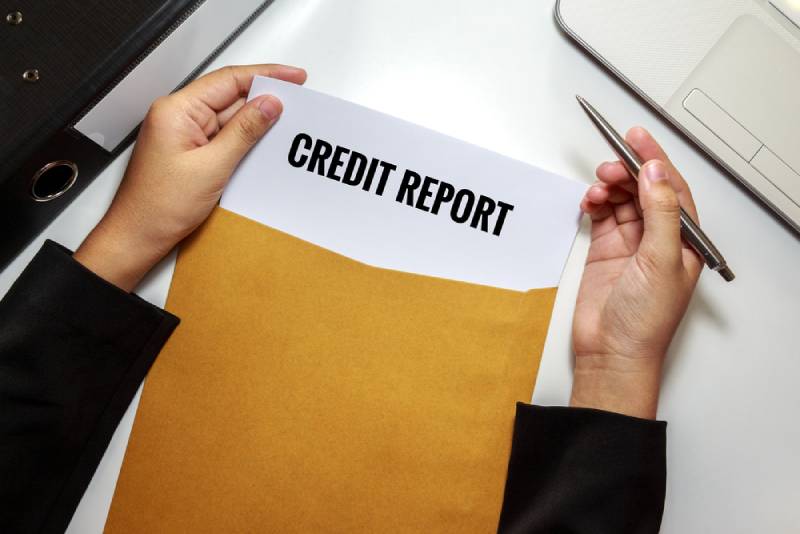
5. Not Setting Financial Goals
This is a recurring mistake when trying to get out of debt.
Debtors fail to set financial goals because they think all they have to do is to focus on putting all their money into paying off the debt.
When setting goals, whether they be in your finances, health, or any other area, they should follow the S.M.A.R.T. technique. S.M.A.R.T. is an acronym for:
- Specific
- Measurable
- Attainable
- Relevant
- Time-bound
These guidelines help with setting goals that are more likely to be achieved.
Setting specific financial goals that can be measured, are attainable and realistic, relevant, and bound to a time limit (deadlines) can help with clearing off your debt efficiently.
Following the S.M.A.R.T. goal setting method is not only applicable to big financial goals such as paying off $10,000 in debt.
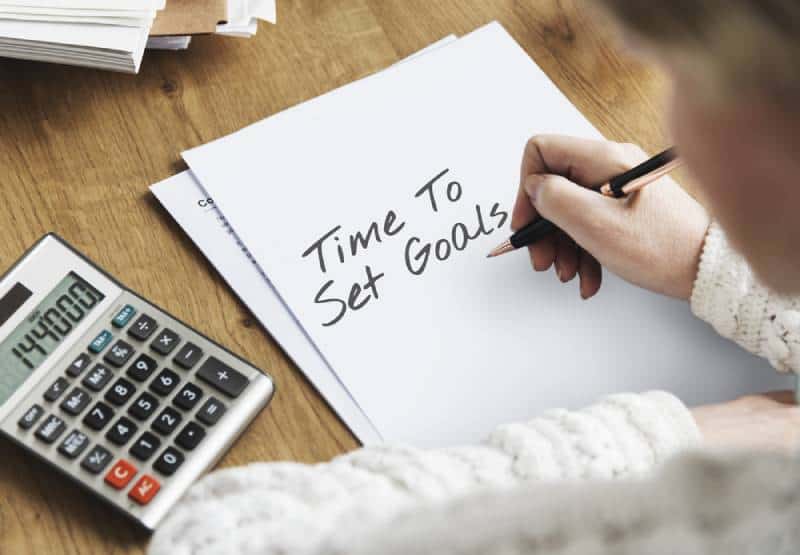
You can apply this method to goals involving paying off low-interest debts such as your phone exchange deal.
The best thing is that this method can be applied to areas outside of finance.
Thank me later when you’re smashing your goals like a boss.
6. Failing to Track Your Payoff Progress
Once you have successfully set financial goals and started making payments towards managing your debt, it is important to keep track of your progress.
Tracking your progress serves as a sort of reward system.
You can view how much your S.M.A.R.T. efforts have come together to move you closer to attaining financial freedom.
Once you hit a certain milestone, you can choose to treat yourself to a reward that is still within your budget.
Monitoring your progress will also help you stay motivated.
Seeing a decrease in your debt balance will encourage you to make more efforts towards reaching your goal.
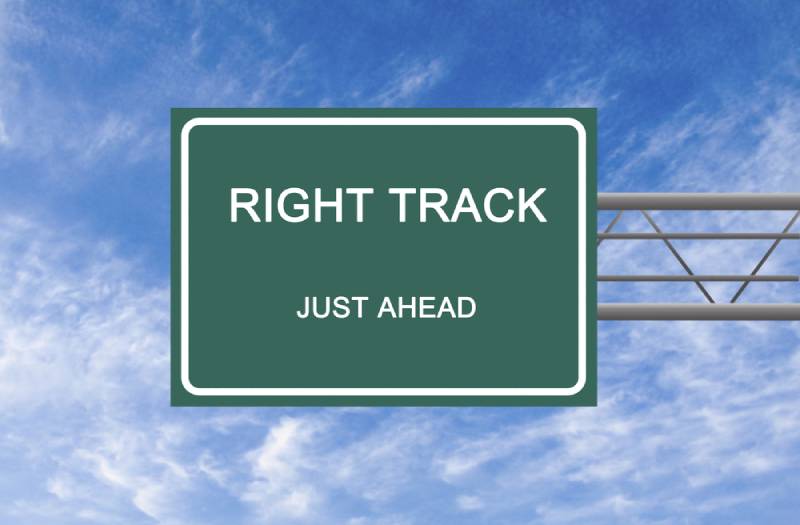
It could even push you to pick up something on the side which would give you extra cash that would help clear your debt faster.
On the flip side, tracking your progress will also help you see if you need to step up your debt repayment plan by increasing the frequency of payments and how much you put in.
Tracking your progress is a great tool as it helps create accountability and clarity.
Using this tool will help you decide on the next step to take.
From your progress report, you can see if you need to opt for alternative payment methods such as credit consolidation, debt settlement, or bankruptcy.
7. Working Alone to Clear Your Debt
We all agree that talking about debt to others can be a touchy subject.
However, it is important to get help when you are working towards becoming debt-free.
If you do not feel comfortable breaching the subject of debt with family and close friends, you can get in touch with credit counseling agencies to get free help from experts in the field.
Various non-profit agencies are available, with counselors certified by national organizations such as the National Foundation for Credit Counseling who are willing and ready to help you.

Counselors can suggest debt-relief solutions such as:
- Credit Consolidation
Credit Consolidation (or Debt Consolidation) is a means of paying off unsecured consumer debt and liabilities by taking out new loans.
All the debt involved is then consolidated into a single debt that has favorable payoff terms.
- Debt Settlement
In debt settlement, a negotiated agreement is drawn up in which the creditor agrees to be paid off with an amount lower than what was originally owed to legally settle the debt.
The downside to this, however, is that it could damage your credit score. Also, not all creditors will be willing to go down the debt settlement route.
- Debt Management Programs
A debt management program is when your debt management company liaises with your creditors to reduce the monthly payments and interest rates on your debt.
They also work towards waiving or reducing any penalties you may have incurred from your debt.
The goal of a debt management plan is not to completely eradicate your debt but to create an affordable payment schedule that allows about 3-5 years to pay off your debt.
If for some reason you are totally unable to finance paying off your debt, then the credit counseling agency may suggest filing for bankruptcy.
- Bankruptcy
Bankruptcy is a legal proceeding that involves a debtor who is unable to pay outstanding debts.
Creditors are not completely left to take the loss as some measure of repayment is made by liquidating the individual’s assets.
It usually offers the business or individual the opportunity to start afresh by letting go of debts that can not be paid off.
Credit counselors will also provide resources such as budget and goal setting templates to help you with paying off your debt.
You really should utilize free credit counselors if you are looking to clear off your debt.
8. Prioritizing Financial Decisions
It is a no-brainer that when you are working towards getting out of debt, you must prioritize your financial choices.
Failing to be financially responsible is the premise of most mistakes when trying to get out of debt.
Every day, we are presented with multiple financial decisions.
It could be something as simple as choosing between taking an Uber or using the subway on your way to work.
Or, it could be a big financial decision such as taking out a mortgage to buy a house or renting an apartment.
Even without having a debt to pay off, it is imperative that all financial decisions must be weighed before a final choice is made.
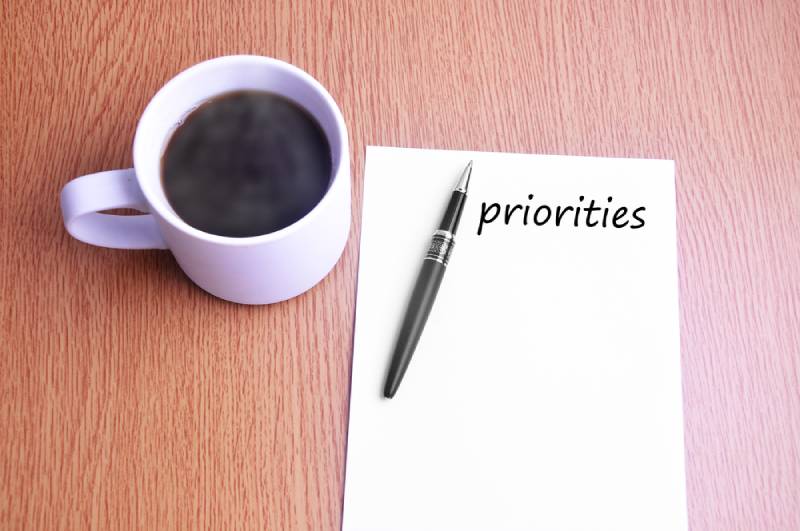
Sticking to your budget calendar and developing this habit is key to clearing even the smallest debts.
A lot of people fail to realize this and feel that once funds have been allocated towards paying off their debt there isn’t any need to bother about other financial choices being made.
Unfortunately, this is what results in car loans, student loan debt, and credit card debt.
Unwise choices ultimately turn into irresponsible financial decisions that will cause further debts to be accrued.
9. Failing to Research the Debt-Relief Program You Have Signed Up For
Most people looking to clear debt will often start looking for a quick and easy way out.
Debtors will often sign up for debt-relief programs without knowing exactly what they entail.
Before getting in touch with any company to help with debt management, you MUST carry out research on them.
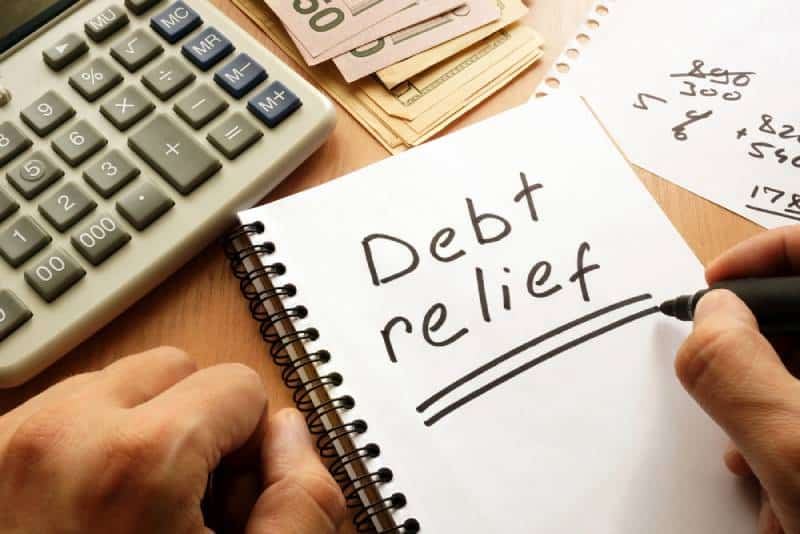
Ensure that they are a licensed body and when possible, read customer reviews about them online.
When working with a counselor on debt relief, you should ask questions along every step of the way.
- How long will it take to clear my outstanding debt?
- What programs are available for me to utilize?
- What resources are available for me to utilize?
Clearing debt can take a bit of time and while this is going on, it is important to remain in the loop about the events unfolding with the company you are working with towards clearing your debt.
Ideas To Earn Extra Money
While recognizing the nine steps listed in this post are important, what is most important is to generate more income.
This will make extra money available which you could use to pay off your debts more quickly.
Whether you work from home or you work a 9-5 job, these ideas will help with generating extra income to help clear your debt.
- Delivering meals with Postmates or Doordash
- Driving for Uber or Lyft
- Working part time as an online tutor or copywriter
- Taking on weekend shifts as a waiter at your local restaurant
- Opening up an online store on Instagram for your lightly-worn clothing items
READ NEXT:
- Where Did My Money Go: 12 Budget Leaks and Tips to Fix Them
- How Do We Cut Our Budget When There’s Nothing Left To Cut?
- Saving Money Motivation: 10 Tips to Reach Your Savings Goals
Like this post? Please share or pin it for later. You can also stay in the loop and follow us on Facebook, Instagram or Pinterest.
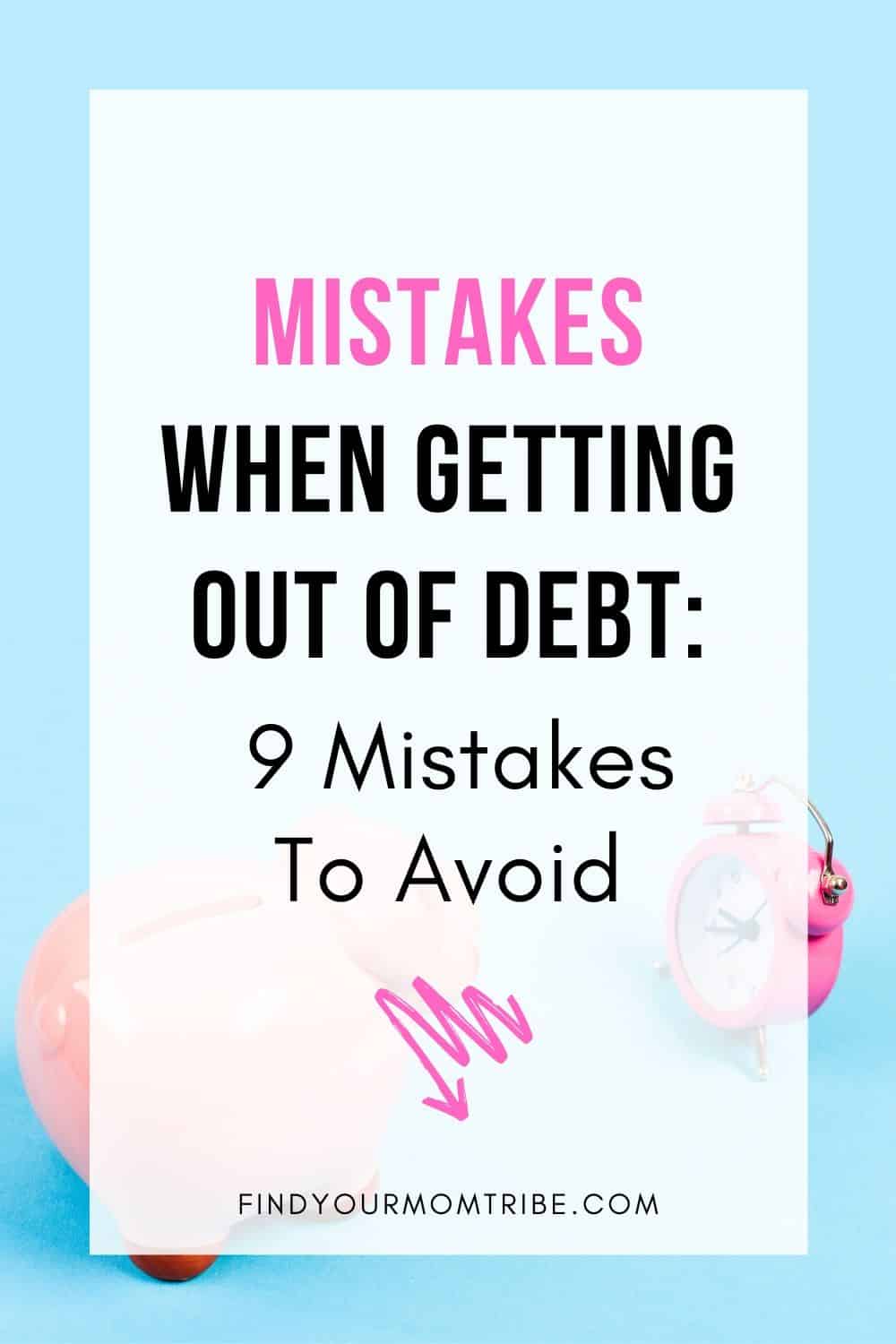
This post contains affiliate links. Please see our full disclosure for more info.

